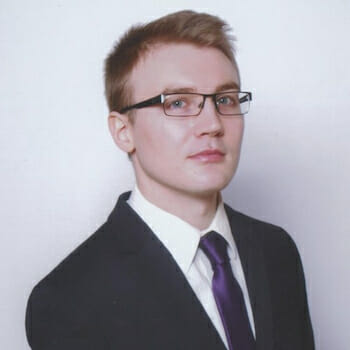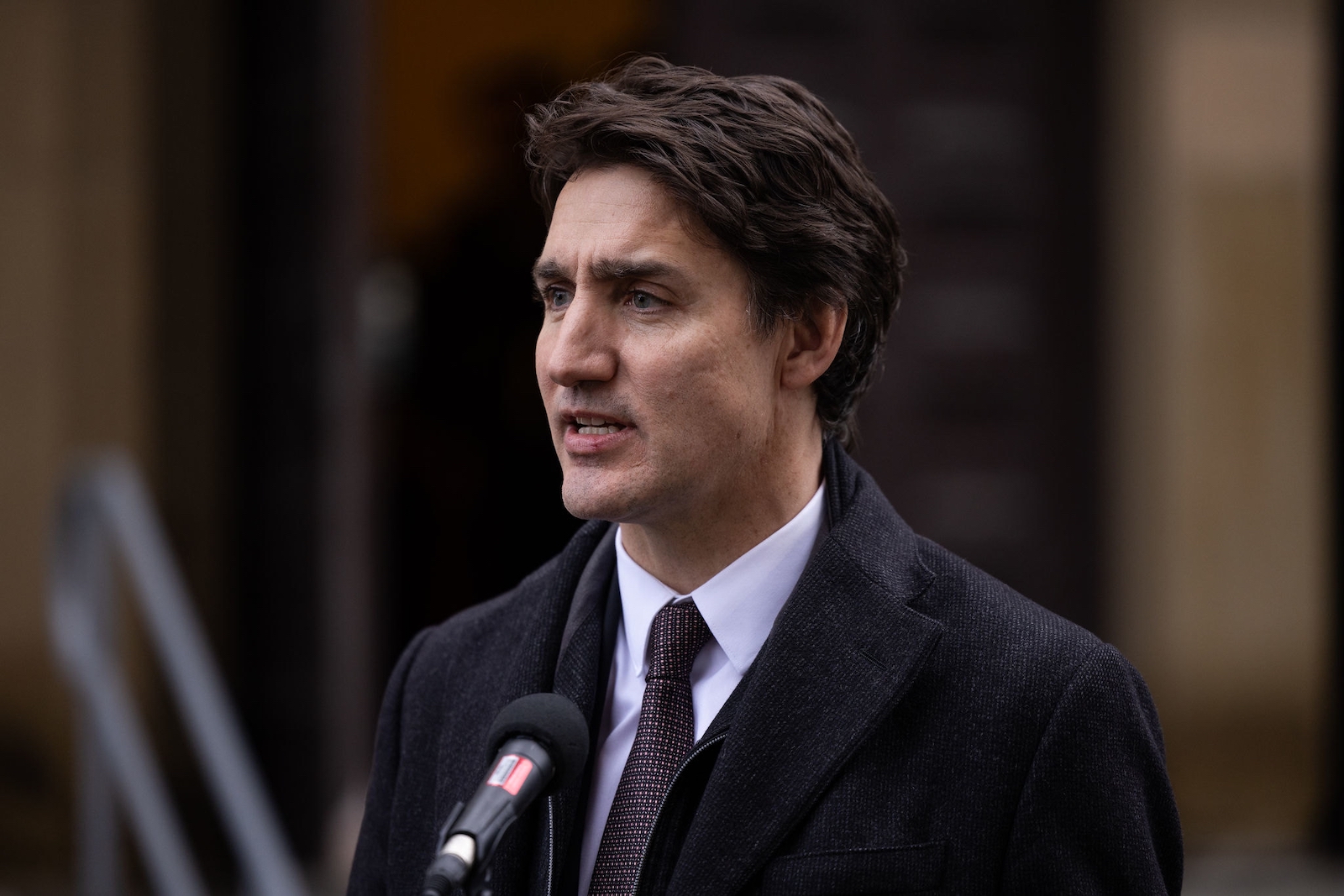
Bob Rae on Diplomacy, Democracy, and Defending Canada’s Values
As Canada’s ambassador to the United Nations, Bob Rae brings a seasoned political instinct to the world of diplomacy. In this conversation, he reflects on how his political career has shaped his approach—favoring direct engagement and forthright advocacy, particularly on Indigenous rights, gender equality, and LGBTQI+ issues. Rae discusses the challenges of fostering global dialogue, maintaining Canada’s credibility on the world stage, and navigating the complexities of multilateralism.
The conversation spans a range of urgent global issues, from the uneven toll of COVID-19 and the war in Ukraine to the escalating crises in the Middle East and the resurgence of authoritarianism. He also delves into the delicate art of consensus-building at the UN, the tension between national interests and universal principles, and Canada’s evolving role in climate policy, cybersecurity, and addressing historical injustices. Throughout, Rae underscores the trade-offs inherent in diplomacy and the ongoing necessity of sustained engagement in defending democracy, human rights, and global cooperation.
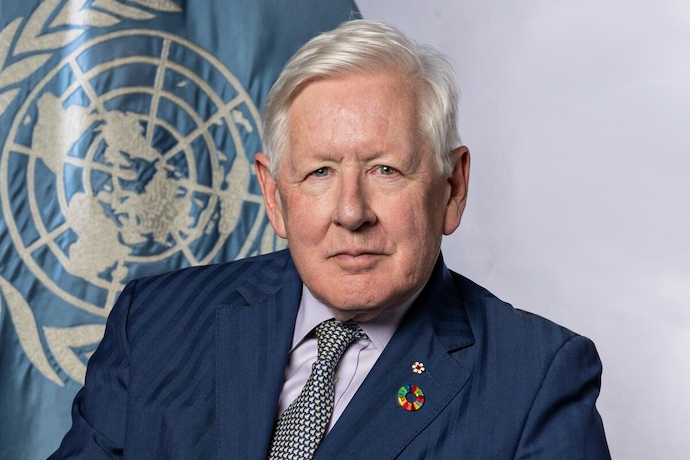
Scott Douglas Jacobsen: How has your extensive experience in domestic politics influenced your approach to international diplomacy?
Bob Rae: First of all, I’m referred to here at the UN as “The Politician” because there’s a difference in style between someone who is used to dealing with the media and others in the diplomatic field. I speak as directly as possible about the issues without necessarily adhering to every word of a prepared text.
I take a more informal approach, but I get along extremely well with my colleagues here, and everyone works differently. Indigenous rights, for example, are issues I have pursued here at the UN. It has been very challenging, but it is nevertheless something I feel strongly about. The UN Declaration on the Rights of Indigenous Peoples (UNDRIP) is an anchor document at the UN, and there is the Permanent Forum on Indigenous Issues, which takes place here every spring. I will attend that under the auspices of the Economic and Social Council (ECOSOC).
My long experience in Canadian politics and involvement in advancing equality rights have shaped my approach to women’s equality issues. The same goes for LGBTQI+ issues—I have been advocating and pushing harder for broader recognition in that area.
I have also worked extensively on employment equity and diversity, which has given me insight into many issues affecting African delegates, for example. African countries have a strong interest in addressing historical legacy issues such as colonialism and slavery, and I believe it is important that we, as a country, recognize the depth and extent of those concerns.
So, yes, all of that has played a role. This job allowed me to draw on my history and skill sets. It has also been a homecoming for me because, as you may know, my father was a diplomat. I grew up and attended high school at the International School of Geneva.
My father later became the Canadian Ambassador to the UN in New York. I did not live here with him because I was already studying at the University of Oxford. Still, it was a significant way for me to—like I said—come back home to something I instinctively knew about and understood. It had a major influence on how I handled political issues in Canada.
So, yes, it has been a wonderful experience, and I have enjoyed participating in the UN’s life here in New York.
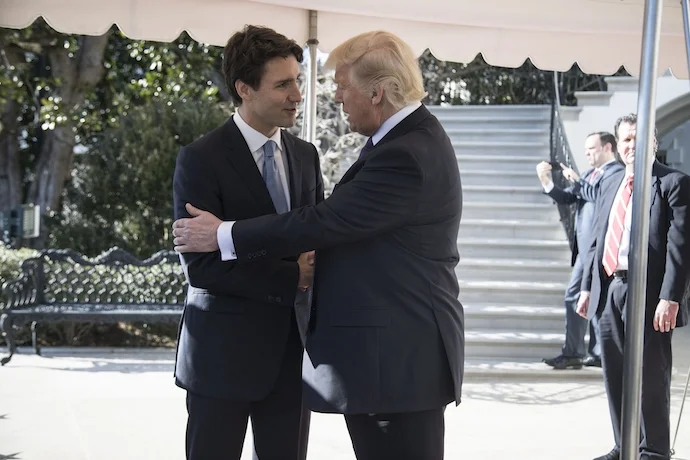
Jacobsen: In your experience, what are the biggest challenges in fostering meaningful dialogue on Indigenous rights, gender equality, and LGBTQI+ issues—such as within the UN LGBTI Core Group—as well as broader concerns like economic inequality? These are inherently global issues, shaped by diverse perspectives and political realities across different regions.
Canada is often seen, at least in principle, as a champion of UN values—a reputation it has carefully cultivated. But such standing is never guaranteed, and credibility on the world stage can be fragile. Given this, what are the key obstacles to advancing these conversations, and how can Canada effectively wield its soft power and commitment to multilateralism to drive progress?
Rae: The key thing, and you make a very good point, is that for us as a country, and certainly for the government that I represent, these issues are core. I need to know that I have the support of the government for which I work. That is an important part of how I have been able to operate in this forum—people know that what I say reflects the views of the Canadian government, not just in principle but also in terms of what we have done and what we are doing.
One of the critical factors for credibility and trust is that you do what you say and reflect that in both domestic and foreign policy. For example, having a feminist foreign assistance program and policy is crucial in discussions with other countries. Whether they already have such a policy, are exploring one, or are questioning why we have one. You explain the reasoning: the historic discriminations that need to be addressed, the systemic barriers that persist, and why it is important for Canada to allocate some of its discretionary funding to this issue.
The COVID-19 pandemic has been a major challenge since 2020. First, the UN, like any organization, had to adjust to the lack of in-person meetings immediately. More importantly, I quickly became aware of the massive gap in the accessibility of vaccines and treatments when they became available in North America and Europe.
The challenge was ensuring that vaccines reached other countries. That was a wake-up call for me because, at home, governments faced tremendous pressure to meet domestic needs. At the same time, Canada made historic investments in distribution networks and vaccine access, particularly through Gavi, the global vaccine alliance based in Geneva.
Still, the pandemic underscored the reality that while we might think we are all in the same boat, we are in very different boats. Some are small and fragile, while others are large and secure. The large and secure boats remain steady when the storm comes, while the fragile ones take the hardest hit.
That realization led me to work on financing for development, which is a major human rights issue for many countries. Developing nations argue that human rights extend beyond individual rights, including social and economic rights—the right to development. The impact of COVID-19 set many things back, derailed progress on the Sustainable Development Goals (SDGs), and created significant debt challenges. The global response to the pandemic essentially shut down the world economy for a while, and the recovery has been uneven. Many poorer countries are still feeling the effects.
Then came the invasion of Ukraine, which immediately polarized relations between Russia, Canada, and other nations. The war in Ukraine has been a defining issue in international diplomacy.
The third major challenge has, of course, been the war in the Middle East—the Hamas attack on Israel, which led to Israel’s counteroffensive in Gaza and the ensuing humanitarian and human rights crises. These have been incredibly challenging times, encompassing the full range of human rights concerns.
And now, with President Trump’s election, there is a new polarizing factor that we are all dealing with as well.
Jacobsen: There is a state of mind for ambassadors and diplomats. I participated in more than a dozen Model United Nations.
Rae: That’s where I started, too, by the way.
Jacobsen: I did two Harvard Model United Nations and several up and down the West Coast.
Rae: I did one in high school at the International School. We had one every year.
Jacobsen: For those unfamiliar, there are roughly 800 or more Model UN conferences held annually, spanning high school to graduate-level participants. At its core, Model UN operates on a consensus-building framework—a stark contrast to the often adversarial nature of politics. A seasoned politician like yourself would understand this distinction far better than I would.
With that in mind, how do you navigate deeply complex issues while engaging with individuals from vastly different cultural and political backgrounds? What strategies do you rely on to foster a mindset of consensus-building when tackling global challenges, ensuring that multiple perspectives are not just acknowledged but meaningfully integrated into the process?
Rae: You’re right. The working method of the UN is consensus. And frequently, it is not achievable. In the UN Security Council, for example, there has been a notorious deadlock in recent years. The UN Security Council depends on consensus but also requires unanimity among the permanent members. That has proven difficult on several critical issues, including Haiti, where Canada has been directly involved. When the UN Security Council reaches an impasse, the General Assembly, representing all member states, plays a much greater role. It becomes a venue where issues are worked on, resolutions are drafted, and votes occur. Not all resolutions pass by consensus—many are voted up or down—so the adversarial nature of some discussions can be quite intense. That dynamic has been very much in play. However, reaching a consensus has proven to be extremely challenging.
In many cases, to achieve consensus, the final statement or resolution says far less than it originally intended. As a result, concluding documents can be bland and lack bold, forward-thinking ideas. I often joke that when the United States’ founding fathers asked Thomas Jefferson to draft the Declaration of Independence, they did not have 193 people holding the pen. Of course, there were disagreements, but ultimately, the person drafting the document significantly influenced what it said.
That’s much less true here. You have 193 countries trying to hold the pen simultaneously. This creates quite difficult conversations about your red lines, what you are prepared to do, what you are not prepared to do, and how you can bridge gaps between us.
Most recently, the document we worked on last summer—the Pact for the Future—was quite a significant document because it was the first attempt to address the post-COVID environment and discuss the need to renew the work of the UN and its vision. Getting to a consensus was very, very difficult. The Russians tried to upset the apple cart, and the Africans said, “No, we’ve made enough compromises. We want to have something in hand and move forward with this document.” That changed the nature of the dynamic, which was quite interesting in September when it was all approved.
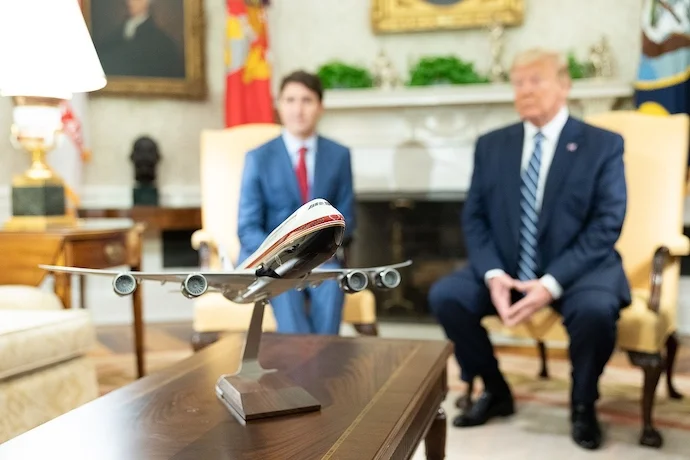
Jacobsen: Another fundamental concept in international relations and diplomacy is the idea of trade-offs. Nations operate on different scales and under varying pressures, often navigating competing priorities. A well-known example is Lee Kuan Yew’s leadership in Singapore, where he balanced linguistic diversity, a complex religious landscape, and geopolitical tensions—managing relations with a rising China while maintaining strong ties with the United States.
Singapore’s small size allows for agility, but it also necessitates strategic concessions. Canada, by contrast, operates on a different scale as a member of the G7 and G20, with broader global responsibilities. In your role as ambassador, how do you navigate the tension between safeguarding national interests and upholding universal principles on the international stage? What strategies enable Canada to maintain this equilibrium in an increasingly complex diplomatic environment?
Rae: That is the challenge. You’ve described it very well. Historically, diplomacy has been one of the great challenges, whether it is about principles or interests. Diplomacy is about both. In the big picture, when you look at the current tensions we face with the Trump administration, Canada’s clear interest is in strengthening the multilateral system because we are a country that depends on a strong rule of law and independent international adjudication.
We depend on the networks of agreements we have reached on a wide range of issues, dating back to 1945 and even earlier in the case of the International Labour Organization, which dates back to 1919. So, it is important for us as a country to recognize that.
As a Canadian, I have felt more strongly here than in other circumstances that we are different from the United States. We have different views on how things should proceed, and they have their perspectives. Those differences have become even more pronounced regarding power politics, geopolitics, and their views on defending spheres of influence.
One reason we are where we are today is that we have to defend our perspective on the United Nations and how international systems should function. This sometimes puts us at odds with our largest trading partner and longest-standing ally. Managing that relationship and balancing these two ideas has been challenging.
But that is not the only issue. In many other situations, we must consider our position as a NATO member, a North American country, and a nation with overlapping international identities. Historically, we have been strong advocates for free trade and for a measured approach to immigration and migration—one that considers human rights while also addressing the realities of how many people a country can absorb at any given time. But then, what do we do about the rights of refugees? These are complex issues that do not lend themselves to a single answer.
My legal education and understanding of life have taught me that we often deal with competing goods, rights, and values. It is not simply interests versus values; it is different values in tension—the value of freedom and equality—and determining how they measure up. How do we navigate those trade-offs?
The reality is that it is a trade-off, and we need to embrace that concept. We need to accept that we will never achieve perfection or complete certainty. That has been an important lesson in my life—learning that in everything we do, by choosing to engage in political decision-making, we are making compromises.
People sometimes criticize politicians for making compromises, but everyone makes compromises. If you are in a relationship, you compromise as soon as you enter it. You will not always get your way; that is simply the way life works.
Jacobsen: How does Canadian diplomacy address emerging global challenges, such as pandemics, cybersecurity threats, and global warming?
Rae: The road we are on right now requires us to recognize that, for some issues, there is no purely national solution. Addressing climate change, for example, demands global cooperation—buy-in from all nation-states, with different levels of commitment depending on their emissions and pollution levels. But the reality is that we only find a way forward if we take climate change seriously, which we do as a country.
If we take it seriously, the next question is, how do we act? The answer is through treaties. Starting with Kyoto and continuing to Paris, we have consistently supported the treaty-making process because we understand that it must be done internationally.
Similarly, we will never ensure global safety during a pandemic unless we cooperate. As I have said many times, there was a period when airplanes and restaurants had smoking sections, but that did not work. It did not stop pollution, and it did not prevent people from inhaling secondhand smoke. In the same way, some challenges—like global health and climate change—require a broader, universal approach.
The second point is that we understand the long-term effects of colonialism as a country. The Prime Minister spoke about this in his first UN speech in 2016. Although we might like to think of ourselves as not being a colonial country, colonialism has directly shaped Canada because Indigenous peoples lived on this land long before settlers arrived. That historical reality has created a unique dynamic we have had to confront, particularly in the past few decades.
That history allows us to approach conversations with other countries about the impact of colonialism and historical injustices, such as slavery, with a deeper understanding. We do not dismiss these concerns. We do not say, “That’s not important,” or “That’s not our responsibility.” Instead, we engage with these issues in a meaningful way.
Some countries see themselves as exceptional—as if history and global norms do not apply to them. But when nations take that stance, they are deluding themselves. No country is truly exceptional in that way. No one is beyond the rule of law and can escape the consequences of history and circumstance.
When we see ourselves that way, we recognize our place in a multilateral context. However, we also live in a time when democracy is under threat, the rule of law is being challenged, and artificial intelligence is revolutionizing how the world operates and evolves. These forces will drive major debates and transformations within global communities.
We need to stay alert to these shifts and understand why defending the values and priorities we take seriously is in our national interest. The rise of authoritarianism, the increasing attacks on institutions simply because they exist, the pushback against human rights and democratic freedoms, and the backlash against LGBTQI+ rights—these are all examples of where we must continue to stand firm. We must stand up for what we believe in and what it means to be human.
Jacobsen: Mr. Rae, thank you very much for your time today. I appreciate it.
Rae: Good to talk to you. Thank you very much for the opportunity.
